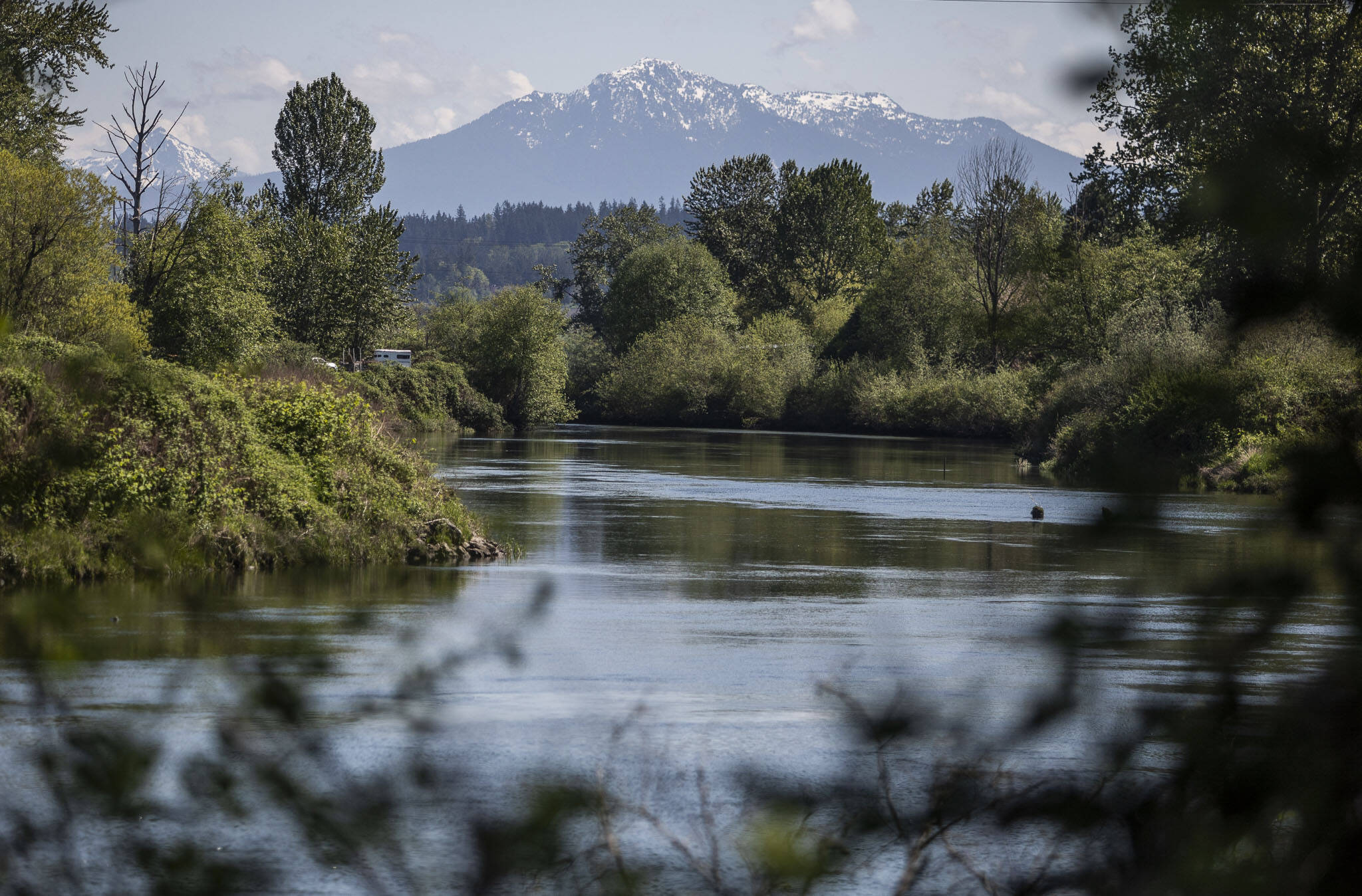EVERETT — Everett voters will decide next Tuesday if the Snohomish River should have legal rights.
If Initiative 24-03 passes, any city resident could take anyone negatively impacting the watershed’s health to court.
Individuals, companies or businesses found responsible for disturbing the watershed would be liable for the damages, and would have to pay City Hall for restoration projects.
The entire Snohomish River Basin watershed covers 1,856 square miles spanning Snohomish and King counties. However, the ordinance only applies to the watershed within Everett city limits. The boundaries include contributing creeks and wetlands, such as Langus Riverfront Park Creek, Union Slough and Port Gardner Bay.
Multiple federal and state laws already govern the watershed. However, laws like the Clean Water Act or Shorelines Act act differently than the proposed ordinance. Those laws regulate levels of pollution or destruction. The ballot measure flips the script, working as a preventative measure.
“It’s very easy to damage an ecosystem,” said Abi Ludwig, a 24-03 campaign spokesperson. “It’s hard to restore one.”
Opponents say the initiative’s language would encourage frivolous lawsuits.
“We’re very concerned about the proposed initiative because it is very broad and isn’t defined,” said David Toyer, president of Toyer Strategic Advisors. “There’s no limitation. It’s all connected based on how they’ve defined the watershed to basically include the entire city of Everett.” Toyer, a developer, is a land use and economic developer, and has donated to the opposing campaign.
Bringing litigation to protect the watershed has no financial incentive, Ludwig said, noting money would go to the city.
A 2018 effort from Olympia Urban Waters League to stop a development on the Moxlie Creek Estuary sparked the Snohomish River campaign. Longtime resident and environmental activist Harry Branch tried to fight the development, but lost because of the creek’s lack of standing.
“One reason other species (or ecosystems) don’t have standing is because they can’t stand up in court and talk,” Branch wrote at the time.
The initiative follows the growing Rights of Nature movement to enshrine legal standing for ecosystems or species, the same as people or corporations. Tamaqua Borough, Pennsylvania, was the first community to give rights to nature when the town passed an ordinance stopping a toxic sludge dump from being built. Since then numerous communities, cities and even countries have granted rights to nature.
“The way we like to think of it is that the watershed has inherent rights and we are acknowledging those rights by giving it legal standing in the court of law,” Ludwig said.
Standing for Washington, a political action committee formed to support nature-focused legislation, previously led campaigns for Budd Inlet, at the southern basin of Puget Sound near Olympia, and the Deschutes River, with headwaters near the foothills of Mount Rainier. In June, the group suspended those efforts to focus efforts on the Snohomish River campaign but will restart in 2025.
The Let’s Say No Together PAC has led the opposition campaign and has raised $42,500. Toyer, Skotdal Real Estate and Everett Bayside Marine Inc. have contributed.
The 38th Legislative District Democrats, Snohomish County Indivisible and Everett Public Schools board member Charles Adkins have endorsed the initiative.
Eliza Aronson: 425-339-3434; eliza.aronson@heraldnet.com; X: @ElizaAronson.
Talk to us
> Give us your news tips.
> Send us a letter to the editor.
> More Herald contact information.

























